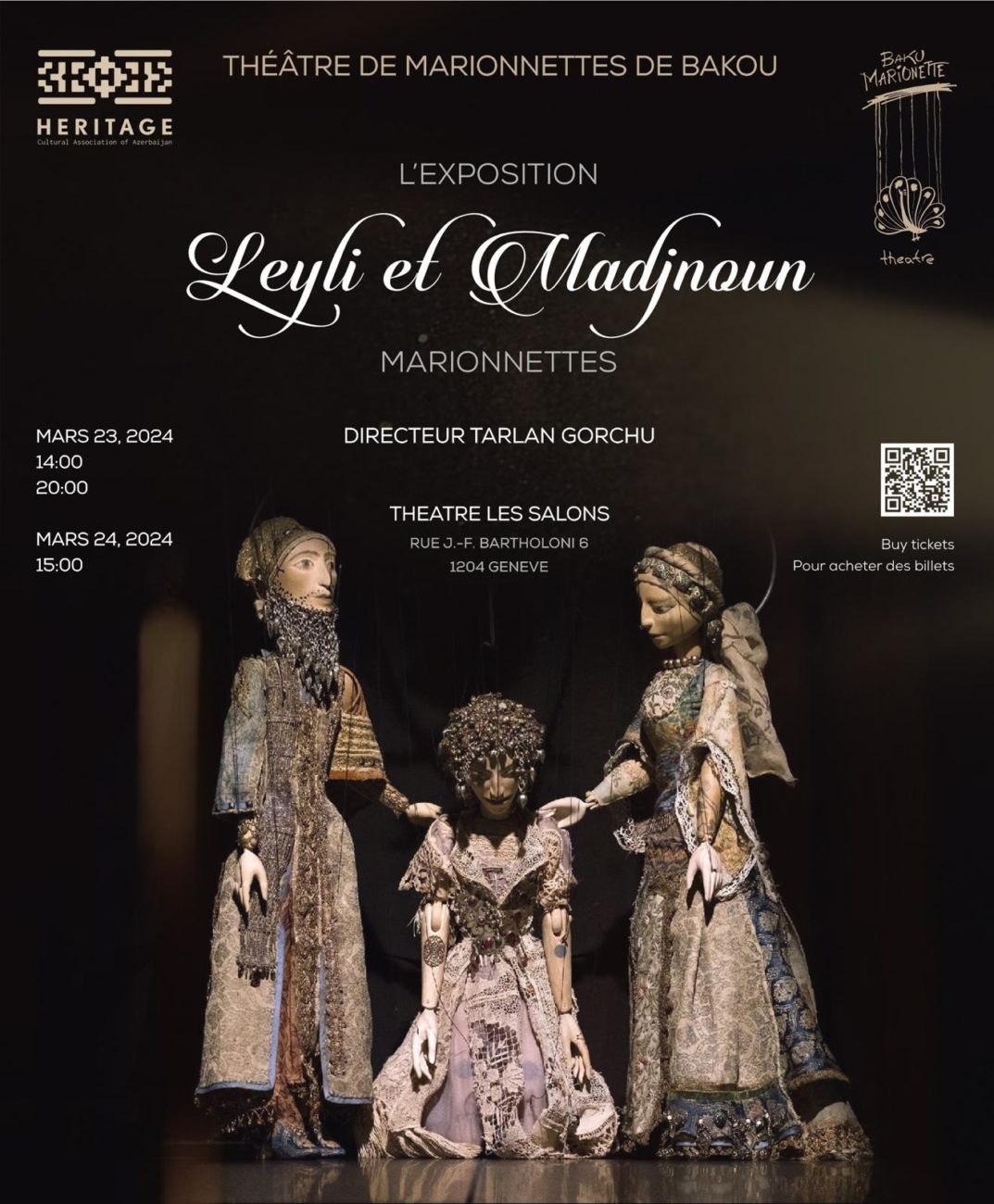The ancient legend of Leyli and Madjnoun, known for their reverence, endless love, and fidelity, roots in Arab folklore, but turned to be popular all over the Orient world. The Eastern Renaissance saw the writing of more than 50 poems about this tragic but beautiful legend. Two of them, ‘Leyli and Madjnoun ‘ by Nizami Ganjavi (written in 1188) and Muhammad Fizuli (written in 1537), are particularly dear to us. The images of young Leyli and Majnun find direct analogies in the classical literary European tradition, such as Tristan and Isolde, Romeo and Juliet, and others. This immortal legend was first portrayed on stage by Uzeyir Hajibeyli. In 1907 it was the first opera of the Mid-East region and marked the birth of a new opera genre, mugham-opera, interweaving Oriental music tradition with European one.
Baku Marionette Theater’s puppet adaptation of Leyli and Madjnoun is a unique attempt to revive this valuable classical work. The famous Qajar painting’s style is utilized in this opera production for the first time. The performance contributes to the popularization of the great heritage not only through stage reproductions but also through exhibitions of sets, puppets, and props, which arouse great interest both in professional circles and among a wide audience of culture lovers in different countries.
It is important to note that the puppets and scenery for the performance were created with Tarlan Gorhcu’s sketches. He used the tradition of Gajar fine arts to create images of Leyli and Madjnoun’s characters. For more than two years while the puppets and scenery were being created, he was literally “torn” between three cities – Baku, Tbilisi, and Vilnius – where the painstaking work on the creation of stage props for the future performance was taking place. Professionals know that this work is a stage-by-stage process (there are about 20 of them), puppets changed hands many times and moved from one city to another until they found their final shape. The audience was captivated by the intriguing puppets and scenery, even without the expressive stage action. Leyli and Madjnoun’s puppets and scenery were incorporated into a solo exhibition in Vilnius (Lithuania), then in Poznan (Poland), and most recently, in their hometown, Baku.
This time round Geneva is hosting Leyli and Madjnoun’s puppets and scene decorations. The exhibition will take place at the Theatre “Les Salons” in the Grand Salon room, rue Jean-F.Bartholoni 6, on 23 and 24 March, admission by ticket.

